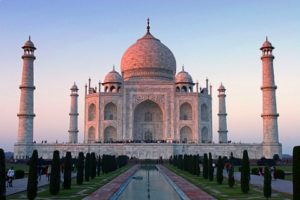
Source: indiabuzzing.com
Overview
2010 cemented India’s status as an economic powerhouse, as she made a robust recovery from a global recession that has battered Western economies. This was evident as world leaders from the heads of the P5 (US, Russia, China, France and UK) to South Korea and Bangladesh trekked to India to strengthen trade and diplomatic ties. In return, India received much sought-after endorsements for her bid to the permanent membership of the UNSC from all the P5 nations except China.
On the western front, relations with Pakistan continued to stay hostile, with disagreements over 26/11 investigations, India’s role in Afghanistan and the conflict in Kashmir. Despite US support for a greater Indian role in Afghanistan’s reconstruction, Pakistan has continued to oppose it vehemently. Relations with China have fared a little better, but not by much as China continues to lay claim to Indian territories in the East and provoked New Delhi by issuing stapled visas to the residents of Jammu and Kashmir.
President Obama’s visit this year signaled the thawing of a somewhat frosty relationship between the two countries, though tensions remain. The outsourcing issue made a come back during the November midterm elections, though Obama’s comments in India effectively neutered the issue as an irritant in bilateral relations. The U.S. continues to remain completely opposed to India’s nuclear liability bill as it stands today. On the Indian side, there was some diplomatic unease over the “humiliating” treatment afforded to Indian diplomats at US airports. Indian investigative agencies were also irked by the limited access granted to them while interrogating David Headley. These issues have cost the Obama administration some points at a time when India does not seem to trust the Democrats as completely as they did the Republicans.
Within India, this was the year that brought excruciating attention to India’s widespread corruption problem. It began with a bidding scandal within the Indian Premier League (IPL), which resulted in the ouster of a high-profile Cabinet minister. This was soon followed by the 2010 Commonwealth Games, which brought world-wide attention to the incredible scale of corruption by the games’ organizing committee. The Adarsh housing scam, involving military elites and the 2G spectrum scam, which reportedly cost the exchequer $39 billion, have left ordinary Indians disgusted not only with the deep roots of corruption in the country, but also with the lack of political will and complacency of the Indian polity and current India government. Prime Minister Manmohan Singh has in particular come under a lot of heat for not speaking out and taking strict action against the wrongdoers.
India also had its version of Wikileaks, when Open magazine exposed tapped telephonic conversations between Nira Radia and some high profile corporate and political leaders in relation to the 2G scam. Earlier in the year, another phone tapping incident brought to light the government’s complicity in tapping the phones of senior political leaders.
Home Minister P. Chidambaram made big promises at the start of the year on revamping and strengthening security. However, it was one of the worst years for internal security, as Maoists launched attacks that targeted Indian security forces. Another low point was the flaring up of violence in Kashmir, which brought life and law and order to a standstill in the state.
Most unexpected event
Bihar Chief Minister, Nitish Kumar, won a landslide victory during the state elections, an event largely hailed as the triumph of merit over caste politics. Bihar, previously considered one of the poorest and worst administered states in the country, has seen double digit growth rate during his tenure.
Persons of the year
- Nitish Kumar – Chief Minister of Bihar, for transforming the once “Dark State” and ushering in “accelerated economic development and improvement in social as well as physical infrastructure.”
- Manu Joseph – Editor of Open Magazine, for having the courage to expose one of his own.
- Whether it is the central theme of Congress leader Rahul Gandhi’s political philosophy, the focus of Bollywood movie Peepli Live or the reason for Bihar’s Chief Minister Nitish Kumar’s recent electoral success, the popular narrative in India during 2010 rested on the common man or popularly referred to as ‘aam aadmi’. Every discussion ranging from issues of corporate responsibility to media credibility and onion prices has referred to what the ‘aam aadmi’ expects. Catering to the needs of the common man and responding to the concerns of civil society is becoming important in India. This is the reason why India’s ‘aam aadmi’ is a Person(s) of the Year. It will be interesting to see the extent to which India’s political and economic super-structure can accommodate/overlook the concerns and demands of the ‘aam aadmi’ in 2011.
What to watch out for in 2011
- The evolution of India-China relations and India-US relations. Now that the Obama administration has given up on its strategy of G-2 engagement, it is hoping to enlist New Delhi in a geopolitical coalition against China. While New Delhi ideally wishes to steer a course between Washington and Beijing, continuing frictions with China in 2011 will pull it ever closer to the US.
- If and how the corruption scandals will affect the current UPA government and Manomhan Singh’s political career.
- India’s lobbying for the UNSC permanent membership after a year full of endorsements and her election to the non-permanent seat.
- Peace and strengthening of the internal security mechanism after the gruesome violence inflicted by Maoists, the violence in Kashmir and the two blasts in Pune and Varanasi.
Manasi Kulkarni, Madhavi Bhasin, David Karl and Aarti Ramachandran contributed to this post.